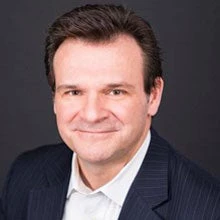
While in Doha, I had the pleasure of being part of a WISE panel debate with Mr. Chavan, which also included Financial Times correspondent Chris Cook and Dr. Talal Abu-Ghazaleh. Anver Versi, editor of African Business and African Banker, was the moderator. During this panel, we discussed innovative financing and the role of public-private partnerships in education. Mr. Chavan began his remarks stating that, “Education is too important to be left to governments alone.”
The discussion that ensued focused on innovative financing mechanisms that will mitigate the effects of declining public resources for education, including public-private partnerships and vouchers that increase parental choice and encourage quality improvement in schools. All panel members focused on models that would enhance quality, equity, and access in education.
I also had the opportunity to hear Her Highness Sheikha Moza bint Nasser announce a global education initiative that targets some of the 60 million out–of-school children. The Educate A Child initiative was introduced by UNHCR spokeswoman (and South Sudanese supermodel) Alek Wek, and a video presenting the initiative featured the voice of actor Robert De Niro. Educate A Child specifically benefits children in conflict zones and focuses on finding innovative solutions and replicating them worldwide. Focusing on 20 countries where children are routinely denied an education due to conflict, refugee status, natural disasters, and poverty, the initiative will initially fund 25 projects benefiting 500,000 children. A call for additional partners to this initiative was put forth during the panel discussion, which included some of the initiative’s current partners such as Gordon Brown, the head of UNESCO Irina Bokova, the head of UNHCR António Guterres, the Chair of GPE Carol Bellamy, and the head of UNRWA Filippo Grandi.
Sheikha Moza is Chair of Qatar Foundation for Education, Science and Community Development, as well as UNESCO Special Envoy for Basic and Higher Education. She is also part of the Steering Committee of theUnited Nations’ Secretary General’s Education First initiative. (World Bank President Jim Yong Kim is also part of that Steering Committee.) Irina Bokova commented that the Educate a Child initiative fits well within Education First.
Both the WISE Prize (and, in particular, this year’s recipient) and the launch of the Educate A Child initiative reflect the importance of finding innovative solutions to reach the world’s most disadvantaged children and to help ensure they learn. Further, they emphasize the critical role of non-state actors in the efforts to reach the last remaining children out of school--those who are the most vulnerable and difficult to reach. They will need to trial and evaluate different approaches, then work to scale up what works. Partnerships between non-state actors, the private sector, governments, donors, and multilateral institutions can then help us reach the most disadvantaged populations and help ensure learning for all.


Join the Conversation